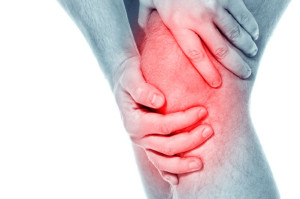Non Surgical Treatment Options For Meniscus Tears
Meniscus tears are a very common knee injury, especially among athletes and older adults. Depending on a number of factors, surgery may or may not be the right choice for this injury. Below, we will take a look at the surgical and non-surgical treatment options for meniscus tears. 
Understanding Meniscus Tears
The knee contains two wedge-shaped menisci, which are made of cartilage. The menisci are responsible for facilitating the smooth movement of the knee joint. After a traumatic injury or a twisting injury, a meniscus may be torn in one or more places. If that occurs, treatment is necessary because cartilage has a limited ability to heal on its own.
Choosing Non-Surgical Treatment
Whether or not surgery is necessary depends on a number of factors:
- Location of the tear – Mild to moderate tears in some locations may not require surgery.
- Severity of the tear – Mild tears often respond well to non-surgical treatment, while moderate to severe tears may not be able to respond
- Activity level – Someone with a high level of activity, such as an athlete, is more likely to require full use of the knee. Surgery is used more frequently in such individuals.
- Age – Surgery carries higher risks and lower benefits when used in older adults, which makes the decision to use surgery one that should be made especially carefully.
- Response to previous treatments – If non-surgical treatments have been used in the past to no effect, then it may be necessary to move on to surgical treatment.
Non-Surgical Treatment Options
Some common non-surgical treatment options for a meniscus tear include:
- RICE – Rest, ice, compression, and elevation are the recommended home treatments for mild orthopedic problems. Your doctor may recommend these treatments as the first course of action.
- Non-steroidal anti-inflammatory drugs – Medications like Aleve and Advil can help to control symptoms and reduce inflammation in the knee.
- Steroid injections – Steroids can be injected directly into the knee joint to provide powerful relief from inflammation. However, there are risks and limitations to this procedure.
- Physical therapy – Physical therapy strengthens the leg muscles that support the knee, which can help relieve symptoms. In addition, physical therapy can restore flexibility to the knee.
In some cases, surgery is the only way to relieve symptoms and restore the knee’s health. Surgery can be performed arthroscopically, which means that the doctor only makes small incisions around the knee, using a camera to view the inside of the knee without opening it up.
Surgery for a meniscus tear is an outpatient procedure which takes under an hour to perform. Patients can return home the same day, and can return to normal activities within a few days. However, it will be longer until it is possible to return to physically strenuous activities.
If you are interested in treatment for your knee pain, Dr. Howard Marans would be happy to hear from you.



